
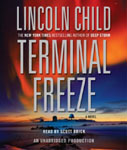 Terminal Freeze
Terminal Freeze
By Lincoln Child; Read by Scott Brick
9 CDs – Approx. 10 Hours 30 Minutes [UNABRIDGED]
Publisher: Random House Audio
Published: February 2009
ISBN: 9780739382028
Themes: / Horror / Thriller / Techno-thriller / Science / Biology / Evolution / Paleoecology / Alaska / Ice / Ice Road Trucking /
Four hundred miles north of the Arctic Circle lies Alaska’s Federal Wilderness Zone, one of the most remote places on Earth. But for paleoecologist Evan Marshall and a small group of fellow scientists, an expedition to the Zone represents the opportunity of a lifetime to study the effects of global warming. The expedition changes suddenly, however, with an astonishing find. On a routine exploration of a glacial ice cave, the group discovers an enormous ancient animal encased in solid ice. The media conglomerate sponsoring their research immediately intervenes and arranges the ultimate spectacle—the animal will be cut from the ice, thawed, and revealed live on television. Despite dire warnings of a local Native American village, and the scientific concerns of Marshall and his team, the “docudrama” plows ahead—until the scientists make one more horrifying discovery. The beast is no regular specimen…it may be an ancient killing machine. And they may be wrong in presuming it dead.
Lincoln child begins Terminal Freeze by quoting all but the last couple sentences of THIS. It’s not exactly a scholarly article, more of a “fun science facts” story. But like Child there are plenty of other folks willing to proffer their own answers to this “mystery.” AboveTopSecret.com (a forum devoted to “conspiracies, UFO’s, paranormal, secret societies, political scandals, new world order, terrorism”) and AnswersInGenesis.org (a site about Young Earth creationism and a literal interpretation of the Book of Genesis) both have explanations for the seemingly flash frozen mammoth that fit into other “theories.” If Child’s solution to the mystery, this novel, wasn’t presented as fiction it’d be just as ridiculous.
So, this isn’t really a Science Fiction novel. At first I had a hard time figuring out what it was. I clued in about the time I started hearing the scientists protags talking about something called “the Callisto Effect” – it sounded like utter bunk – so I looked it up. Yup it is bunk, it’s a fictional theory first invented for the Lincon Child/Douglas Preston novel The Relic (which got turned into a pretty good horror movie). The Callisto Effect is a Child/Preston invention, a kind of a fictional spin-off of the saltation hypothesis. As one other reviewer of this book noted the Callisto Effect can be summed up like this:
“…when a species becomes too numerous or starts to lose evolutionary vigor a monstrous superpredator suddenly appears and kills until it can kill no more.”
So ya, like I was saying, there are scientists in Terminal Freeze, and they talk about pseudo-scientific ideas, but this is just window dressing for the plot of a monster hunt.
We might think of the “techno-thriller” as a kind of a modern gothic novel. Even as far back as the 19th century, Edgar Allan Poe and Jules Verne, were setting their “fantastic tales in the remaining unexplored regions of the world. By the early 20th the likes of H.P. Lovecraft, and John W. Campbell only had one unexplored continent: Antarctica. The same would be true for a modern audience but now that even Antarctica has been laregly de-mystified we’re having to place our monster horror stories in inaccessible caves and hidden military bases (at least that’s the route Terminal Freeze takes).
The story is rather drawn out, with a number of blandish stock characters brought in seemingly only to be picked off one by one (which surpringly both does and doesn’t happen). The scientists, none of whom are particularly interesting, end up working with a local native, who was also co-incidentally a former soldier at Fear Base, and also a former junior scientist there, and also a co-discoverer of the original monster (back in the 1950s). Given those credentials you’d think then that he’d be absolutely instrumental in solving the mystery of what the frozen monster is and how it escaped. But no, he just gives a highly ineffectual and unrealistically cryptic warning (at the beginning of the novel) is promptly ignored – shuffles off the stage only to be brought back later, like Chekhov’s gun, jumbling around a bag of religious artifacts – which do nothing. Apparently the gun on the mantle was just a prop. Child added in an absolutely unnecessary batch of TV documentary people. The only reason I can think they’re there for is that it’d make for some good visuals should they make a movie of this novel. They’re all there when the monster in the ice escapes from the mysteriously melted ice. And of course their there when people start dying grizzly deaths as they wander off alone. But they don’t do much with those cameras and they end up leaving before the end.
After finishing the novel I was kind of interested in finding out if any of the locations in this novel were real. In the book there is a mountain called “Mount Fear,” a glacier called “Fear Glacier,” and a “Fear Base” (a D.E.W. Line style military facility). It turns out that they all don’t really exist, they are all made up.
One thing I did like about the novel was the discussion about the different types of ice. When the scientist are sitting around trying to explain how the creature in the ice escaped they briefly discuss different ways water crystallizes into ice, how these different types of ice are formed, and their differing properties. This briefly re-invigorates the mystery – but it is ultimately thrown away – discarded and replaced with a less than satisfactory explanation.
Scott Brick, who probably reads more books than any other audiobook narrator working today, does his best with what he’s given. The baddies come off badish, the heroes come off goodish, the monster comes off monsterish. The most interesting portion of the novel is actually a bit, almost completely tangential to the monster plot when an “ice road trucker” has to drive the survivors to safety. Brick works hard to make the cracking of the ice and the freezing cold compelling. And that’s the part of the novel is more believable.
Posted by Jesse Willis

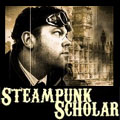

 Some terrific new listening, and some re-recorded tales, are found in this collection of LibriVox’s short Science Fiction:
Some terrific new listening, and some re-recorded tales, are found in this collection of LibriVox’s short Science Fiction:
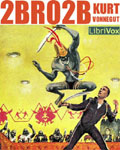
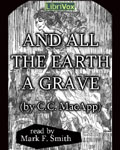
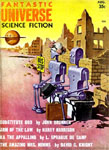
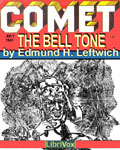
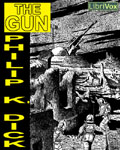


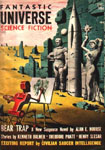
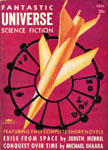
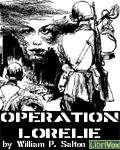 Operation Lorelie
Operation Lorelie

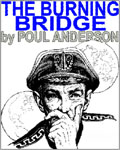




 Killing Castro
Killing Castro